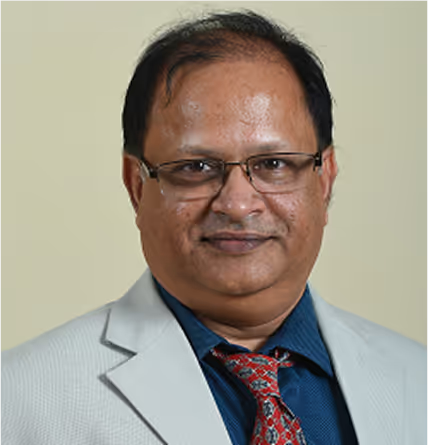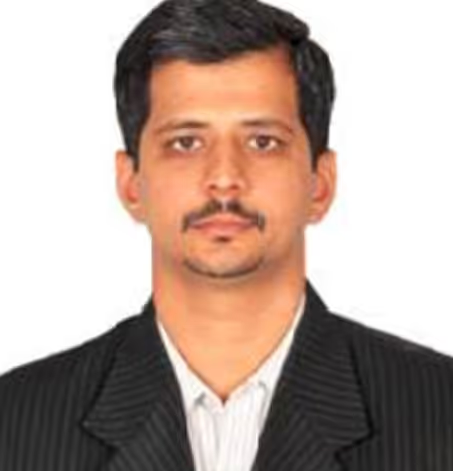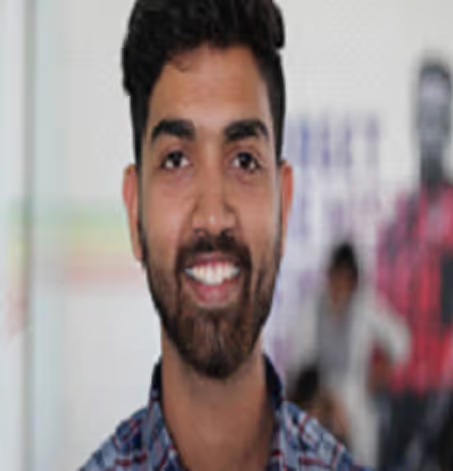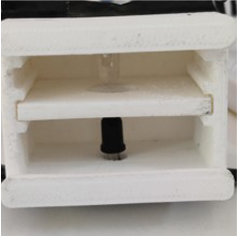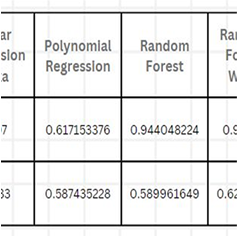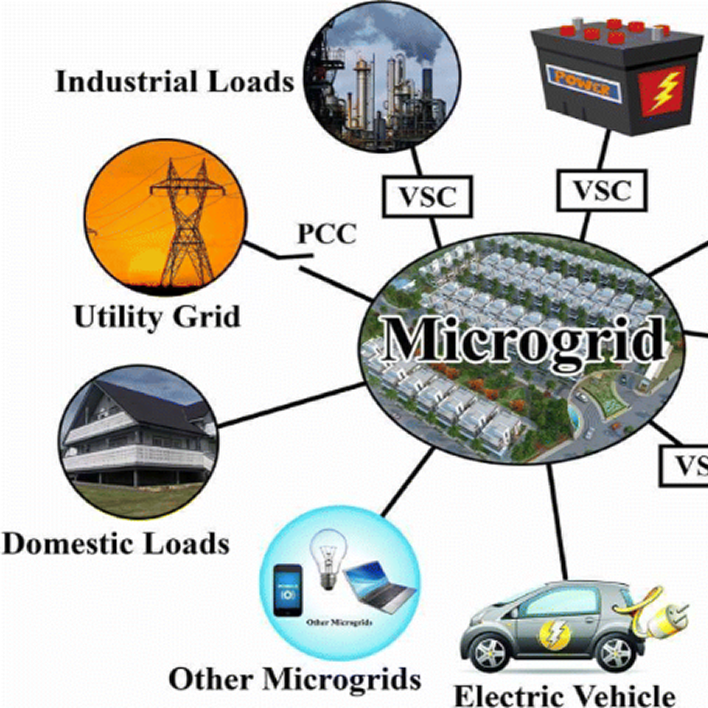Department of Electronics and Communication Engineering
Curious how tech works? ECE is your place! We shape the future, from 5G to AI and space tech. ECE engineers design the "brains" of devices, working in cutting-edge fields like semiconductors and robotics. The world runs on ECE, offering global career opportunities.

NIE Mysuru's ECE department is where technology’s future unfolds—from AI/ML, VLSI to 5G and beyond. Here, you’ll gain hands-on skills for high-demand fields like semiconductors, robotics, and space tech. Our mission is to prepare you for leadership in innovation. Let’s build tomorrow, together.
Dr. Rajalekshmi Kishore
Head, Electronics and Communication Engineering

About The Department
Since 1971, ECE has been at the forefront of technological innovation, shaping the future of electronics and communication. Today, we focus on cutting-edge domains like VLSI, signal processing, nano-devices, embedded systems, IoT, and communication networks, while tackling modern challenges through AI and ML-driven solutions. Our state-of-the-art laboratories, industry-aligned curriculum, and research-driven faculty ensure that students gain hands-on expertise in designing next-generation systems.
Through collaborations with leading industries and research institutions, we foster an environment where innovation thrives. Our graduates are highly sought after by global tech giants, driving advancements that shape industries and society ethically. Join us to engineer the future—where creativity meets technology, and ideas transform into impact!
po’s
PO1:
Engineering knowledge: Apply the knowledge of mathematics, science, engineering fundamentals and an engineering specialization to the solution of complex engineering problems.
PO1:
Engineering knowledge: Apply the knowledge of mathematics, science, engineering fundamentals and an engineering specialization to the solution of complex engineering problems.
PO1:
Engineering knowledge: Apply the knowledge of mathematics, science, engineering fundamentals and an engineering specialization to the solution of complex engineering problems.
po’s
PO1:
Engineering knowledge: Apply the knowledge of mathematics, science, engineering fundamentals and an engineering specialization to the solution of complex engineering problems.
PO1:
Engineering knowledge: Apply the knowledge of mathematics, science, engineering fundamentals and an engineering specialization to the solution of complex engineering problems.
PO1:
Engineering knowledge: Apply the knowledge of mathematics, science, engineering fundamentals and an engineering specialization to the solution of complex engineering problems.
po’s
PO1:
Engineering knowledge: Apply the knowledge of mathematics, science, engineering fundamentals and an engineering specialization to the solution of complex engineering problems.
PO1:
Engineering knowledge: Apply the knowledge of mathematics, science, engineering fundamentals and an engineering specialization to the solution of complex engineering problems.
PO1:
Engineering knowledge: Apply the knowledge of mathematics, science, engineering fundamentals and an engineering specialization to the solution of complex engineering problems.

Vision
Department of Electronics and Communication will be globally recognized that imparts high quality education and enables innovation, research and teamwork capabilities to students, whose graduates serve diverse needs of society.
Mission
- To design academic curricula and activities to produce competent Electronics graduates
- To develop acumen to absorb emerging knowledge and to Life-Long Learning
- To provide group activities in the area of Electronics and Communication Engineering that enable innovation and teamwork
- To interact with professional bodies and corporates in Electronics, Communication and IT sectors
Our Programs
Undergraduate
BE in Electronics and Communication Engineering
Post-graduate
M.Tech in Networking and Internet Engineering
Doctoral
Ph.D in Electronics and Communication Engineering

Our Faculty
The department faculty has some of the most accomplished Professors in the Institution. They not only guide the students through their academic challenges but also help them in their personal development.
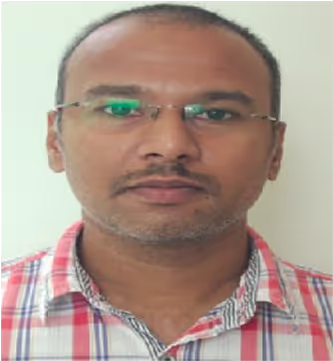


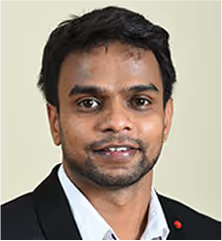

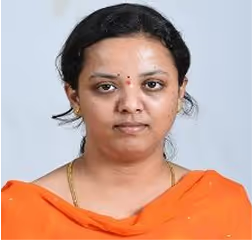
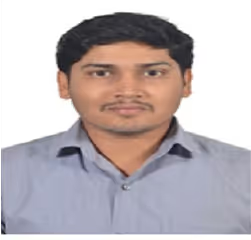


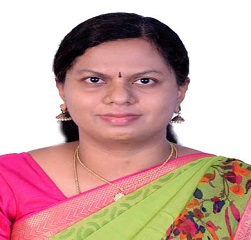
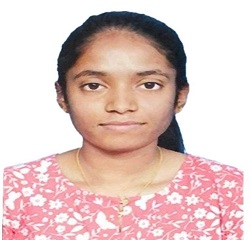
Curriculum
Access syllabus and timetable for courses taught under the Undergraduate and Post-graduate programmes.
Course name
Course code
Credits
ECE-1st Year PG-Embedded System and Computing-Curriculum Structure & Syllabus 2025-26
EEE- M.Tech in POWER SYSTEMS & COMPUTER APPLICATIONS IN INDUSTRIAL DRIVES (for III & IV Sem)
Best Practices
We implement innovative educational approaches to ensure our students receive a world-class education and preparation for their careers.
Courses with integrated Laboratories
Some courses have lab or tutorial component so that students can learn hands if there has to be practical exposure, or tutorial if there is some problem related that they need to learn.
Design based laboratory projects
Electronics component needs exposure to design on some practical applications, which students work and implement them and do end of semester they show case them.
Usage of open source and/or licensed software tools in the laboratories.
We either use open source software or licences tools.
Constantly upgrade the curriculum to the latest cutting-edge technologies
Every year we look at the current curriculum and get feedback from various stakeholders and update the syllabus accordingly.
Elective courses by resource persons from Industries (IDE).
From 5th semester onwards we do bring in the blend of Industry driven courses so that the students get exposure to latest and cutting edge technologies for them to learn and implement.
Career guidance to the students through academicians/industry experts and alumni
Every year we call upon our alumni or academicians for expert talk to make the students know about what is happening in the industry.
Moodle LMS for Course material, Quizzes & Assignments
All our course material, quizzes and assignments are made available through LMS (moodle).
Departmental Activities
Get a glimpse of all the latest conferences, project displays, lectures, seminars, and other programmes conducted by the Department
Title of Seminars/Conferences
Resource Person
Date
Sangeet Shatranj conducted on 28th May 22 by KalaSamhitha – cultural club, NIE Mysore.
28 May 2023
and
Technical Talk on Applications of FinFET and Emerging Devices
03 Feb 2023
and
VAIDYUTHAK: NIE-ECE Fest 2023-24
04 Dec 2023
and
Principles of Engineering Electromagnetics
05 Dec 2023
and
December 7, 2024
Student Projects
Research & Development

Get in touch

Dr. Rajalekshmi Kishore
Associate Professor and HOD
Department of Electronics & Communication Engineering
The National Institute of Engineering

Mysuru - 570 008





















